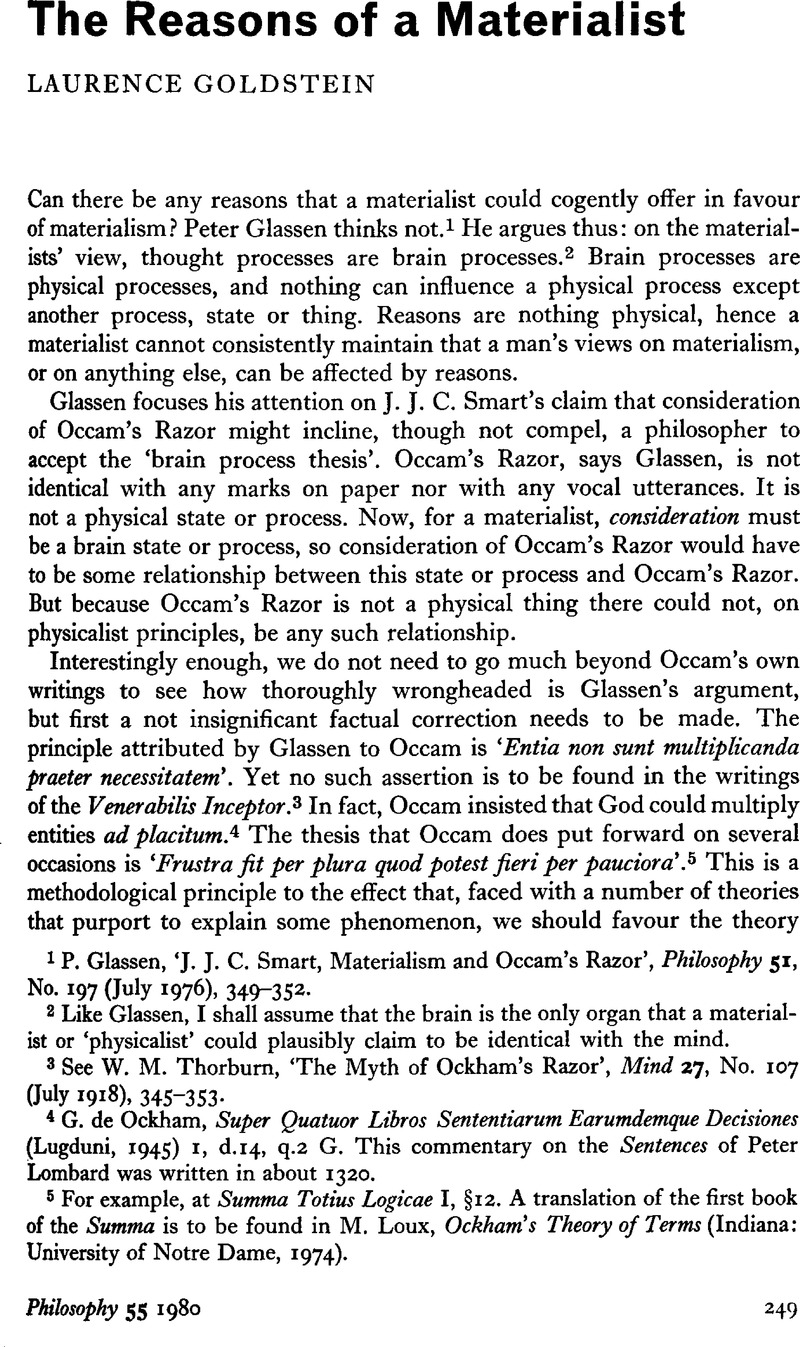Published online by Cambridge University Press: 30 January 2009

1 Glassen, P., ‘J. J. C. Smart, Materialism and Occam's Razor’, Philosophy 51, No. 197 (07 1976), 349–352.CrossRefGoogle Scholar
2 Like Glassen, I shall assume that the brain is the only organ that a materialist or ‘physicalist’ could plausibly claim to be identical with the mind.
3 See Thorburn, W. M., ‘The Myth of Ockham's Razor’, Mind 27, No. 107 (07 1918), 345–353.CrossRefGoogle Scholar
4 de Ockham, G., Super Quatuor Libros Sententiarum Earumdemque Decisiones (Lugduni, 1945) 1, d. 14, q. 2 GGoogle Scholar. This commentary on the Sentences of Peter Lombard was written in about 1320.
5 For example, at Summa Totius Logicae I, §12. A translation of the first book of the Summa is to be found in Loux, M., Ockham's Theory of Terms (Indiana: University of Notre Dame, 1974).Google Scholar
6 Searle, J., Speech Acts (Cambridge University Press), 29.Google Scholar
7 Glassen himself recognizes that neither Occam nor the materialists would accept that Occam's Razor is a non-physical thing.
8 For Occam, the primary signs are words of mental language which he identifies as acts (in the Aristotelian sense of actualities) of understanding.
9 Summa Totius Logicae, §§14–16. This Summa may be regarded as a sustained attempt to dispel the ancient illusion ‘Unum nomen, unum nominatum’.
10 See, for example, Sellars, W., ‘Abstract Entities’, Review of Metaphysics 16, No. 64 (06 1963), 627–671.Google Scholar